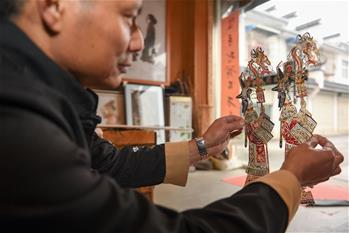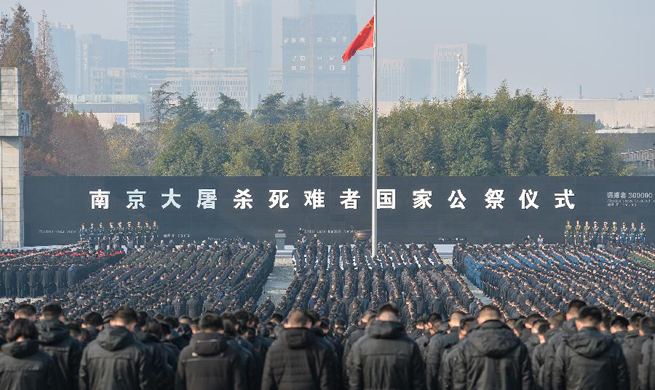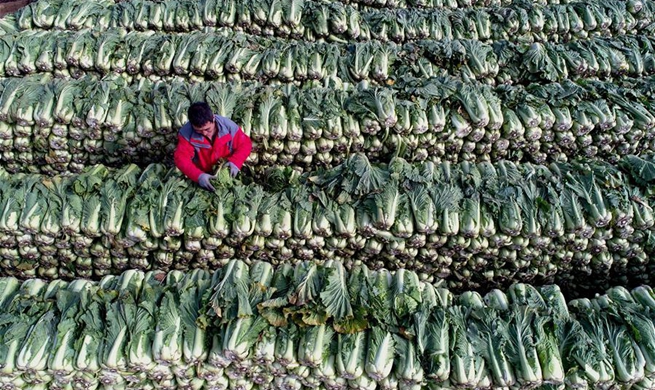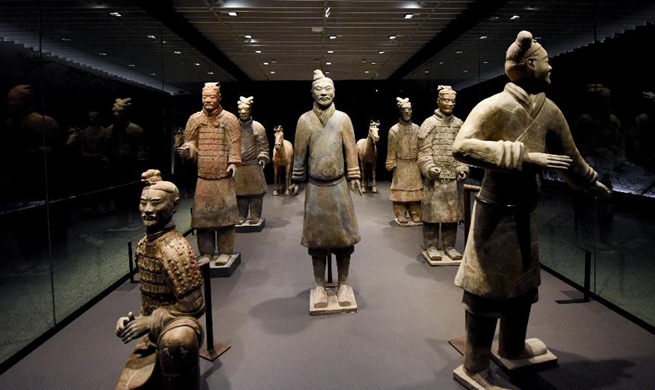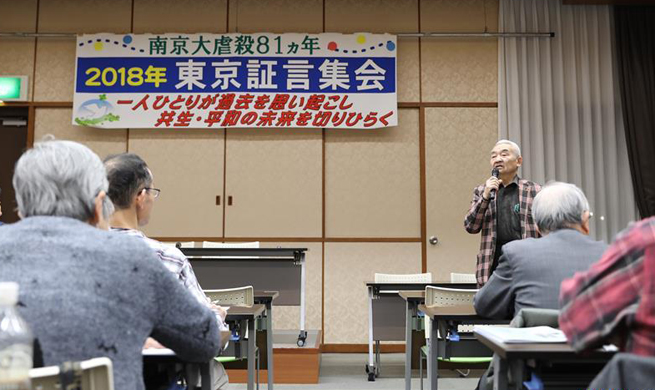by Mahmoud Fouly
CAIRO, Dec. 13 (Xinhua) -- It looked like a beehive inside a Chinese mobile internet company operating in classy Garden City of Egypt's capital Cairo, with dozens of Egyptian and Chinese colleagues either busy going back and forth from one room to another or sitting on their desks with their faces nailed to desktop computers and laptops.
They work for the Cairo branch of OneMena, a giant Chinese mobile internet company headquartered in Beijing, which has been providing smartphone internet applications targeting 490 million Arabic-speaking users in the Middle East and North Africa (MENA) region.
"We're very popular in the Middle East because we have several interesting Arabic applications used by more than 40 million users in the region, besides our popular games," said Ma Qiang, the company's regional manager.
Besides the headquarters in Beijing, OneMena has two other bureaus in China and also branches in Egypt, Saudi Arabia and the United Arab Emirates, with an eye to further expand in the Arab region.
The company, as its slogan tells, seeks to "let Arabic people enjoy the same convenient internet life as China."
Among OneMena's applications are Hayaa (Life), which it claims to be the number one female health application in the Arab world, and Tefly Life (My Child's Life) that helps Arab mothers take care of their children.
Anawin (News Headlines) is another application that filters news headlines based on the users' preferences using data mining and intelligent recommendation, while KooraCafe (Football Café) application provides football news and live streaming from all over the world.
"I work on KooraCafe application specialized in football. The application has been running for a year and a half and it has about 100,000 daily active users," Hu Wei, a Chinese employee in his 30s, told Xinhua as he was working on the application.
"I learn more about internet technology from our team in China and convey it here to my Egyptian colleagues," he added.
Hu noted that KooraCafe saw a massive traffic during Egypt's match with Saudi Arabia in the 2018 World Cup, as the number of users who watched the match through the application reached about 30,000 within two hours.
At a nearby desk, his Egyptian colleague Mahmoud Saleh was working on the content of some news reports for Anawin application and discussing some relevant points with other team members.
"Anawin is generally concerned with news in the fields of politics, economy, sports, arts, celebrities, etc. The application has more than 500,000 downloads so far, with more than 100,000 active users," the Egyptian young man told Xinhua.
Saleh said that the Egyptian employees learned a lot from the Chinese expertise in digital media and mobile applications that are not so advanced in Egypt.
"It's a new and unique experience that helped me a lot and we hope to see such a market of mobile internet business in Egypt," he added.
OneMena's Cairo branch has some 50 Egyptian and 100 Chinese employees and the company invested more than five million U.S. dollars in Egypt alone since it started in 2016, according to Huang Tiangu, head of the application department in OneMena.
"Mobile internet technology is not very common in Egypt and most of the technical operations in OneMena are run by Chinese. But I believe that internet technology will develop fast in Egypt in the near future," Huang added.
He stressed that the friendship ties and comprehensive strategic partnerships between China and many Arab states provided Chinese companies greater opportunities to invest in the Arab world.
Another product of OneMena's Cairo branch is the Arabic version of China Weekly News magazine, which is affiliated with a China-based magazine released in eight languages.
"Egyptian-Chinese relations are strong and historical, which is greatly reflected on their journalism and media cooperation, part of which is China Weekly News magazine," said Medhat Emam, editor-in-chief of the magazine's Arabic version published in Cairo.
Emam said that the Egyptian-Sino media cooperation is very important due to the growing numbers of Chinese factories and companies operating in Egypt and the increasing number of Egyptian people learning the Chinese language.
"Thousands of Egyptians study Chinese in Egypt, whether in their colleges, Confucius Institutes or the Chinese Cultural Center in Cairo. They are part of the Egyptian-Chinese cultural interaction and they are very interested in publications on China like our magazine," he told Xinhua.


